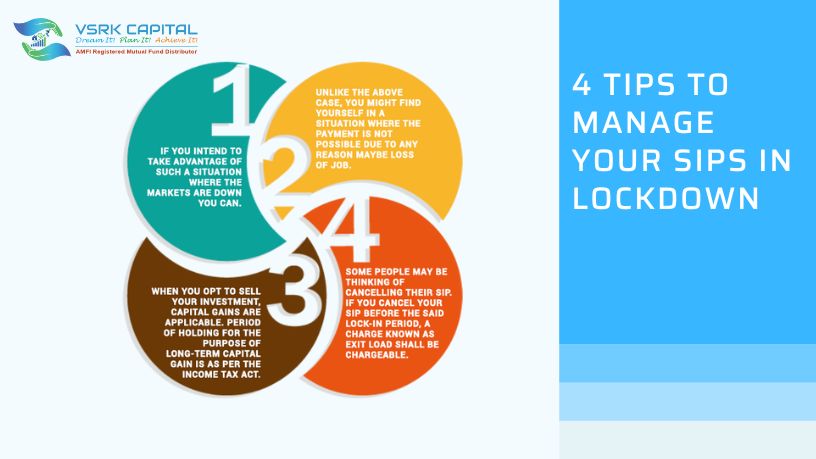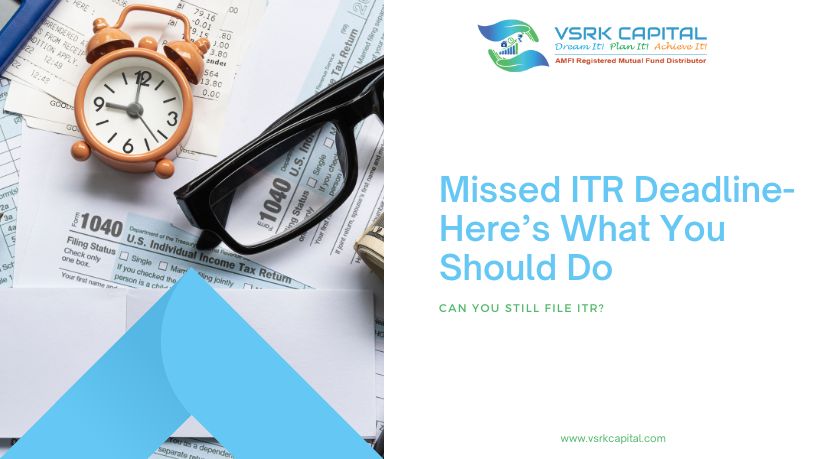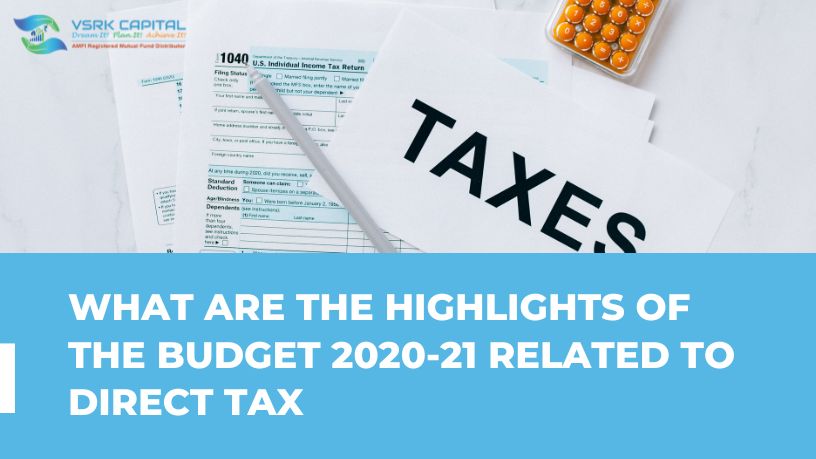On 1st February, The Finance Minister of India announces the Annual Budget 20020-21 which included a lot of measures to revive our slow economy. This was inclusive of various short term, medium and long term measures. The following actions were made in Direct Tax:
One of the major changes that were proposed to stimulate growth, simplify tax structure, bring ease of compliance, and reduce litigations and thereby provide significant relief to middle class taxpayers.
The New and simplified personal income tax regime proposed is as follows:
| TAXABLE INCOME SLAB (Rs.) |
EXISTING TAX RATEs |
NEW TAX RATEs |
| 0-2.5 Lakh |
Exempt |
Exempt |
| 2.5-5 Lakh |
5% |
5% |
| 5-7.5 Lakh |
20% |
10% |
| 7.5-10 Lakh |
20% |
15% |
| 10-12.5 Lakh |
30% |
20% |
| 12.5-15 Lakh |
30% |
25% |
| Above 15 Lakh |
30% |
30% |
However, there is one set back of the new scheme, the tax payers in the new regime would not be allowed to claim around 70 of the existing exemptions and deductions (more than 100) would be removed.
However, please note that the new tax regime is optional and that an individual has the option to continue to either opt the new scheme or pay tax as per the old regime and avail deductions and exemptions. This bold step of the government would cost them estimated revenue forgone of Rs. 40,000 crore per year.
In addition to the above, measures to pre-fill the income tax return are initiated so that an individual who opts for the new regime gets pre-filled income tax returns and would need no expert assistance to pay income tax.
Apart from the above the following changes are also entailed:
- Corporate Tax:
Tax rate of 15% extended to new electricity generation companies.
Indian corporate tax rates now amongst the lowest in the world.
2. Dividend Distribution Tax (DDT):
DDT has been removed in the hands of the corporate making India a more attractive investment destination. Deductions will be allowed for dividend received by holding company from its subsidiary. Please note that the dividend would be taxable in the hands of the investors.
3. Start-ups:
Start-ups with turnover up to Rs. 100 crore to enjoy 100% deduction for 3 consecutive assessment years out of 10 years. Tax payment on ESOPs has been deferred.
4. MSMEs to boost less-cash economy:
Turnover threshold for audit has been increased to Rs. 5 crore from Rs. 1 crore for businesses carrying out less than 5% business transactions in cash.
5. Cooperatives:
Since cooperatives are an important instrument of growth of an economy, option to cooperative societies to be taxed at 22% + 10% surcharge and 4% cess with no exemption/deductions is given in order to bring parity brought between cooperatives and corporate sector.
Also, Cooperative societies exempted from Alternate Minimum Tax (AMT) just like Companies are exempted from the Minimum Alternate Tax (MAT).
6. Tax concession for foreign investments:
For boosting foreign investment 100% tax exemption to the interest, dividend and capital gains income on investment made in infrastructure and priority sectors before 31st March, 2024 with a minimum lock-in period of 3 years by the Sovereign Wealth Fund of foreign governments has been given.
7. Affordable housing:
The additional deduction up to Rs. 1.5 lakhs for interest paid on loans taken for an affordable house has been extended till 31st March, 2021. Date of approval of affordable housing projects for availing tax holiday on profits earned by developers extended till 31st March, 2021.
What are the Tax Facilitation Measures?
-
- Now Instant PAN would be allotted online through Aadhaar.
-
- Under the Finance Minister’s ‘Vivad Se Vishwas’ scheme, with a deadline of 30th June, 2020, to reduce litigations in direct taxes:
-
- Waiver of interest and penalty – only disputed taxes to be paid for payments till 31st March, 2020.
-
- Additional amount to be paid if availed after 31st March, 2020.
-
- Benefits to taxpayers in whose cases appeals are pending at any level.
-
- In order to reducte corruption and bring transparency in governmental operations faceless appeals to be enabled by amending the Income Tax Act.
-
- For charity institutions:
-
- Unique registration number (URN) would be issued to all new and existing charity institutions.
- Pre-filling in return through information of donations furnished by the Donee.
- Process of registration would be made completely electronic.
- Provisional registration to be allowed for new charity institutions for three years.
- CBDT to adopt a Taxpayers’ Charter.
How does VSRK help you with the new tax planning and filings?
We, at VSRK are a team of highly trained Taxation professionals. We are one of the Best Tax Planning Company in Delhi providing Online Tax Planning Services to all our clients. We are a well-known name for Tax Planning Services in Delhi NCR. As per the new scheme Income Tax Payers has the option to choose between the 2 schemes. We step herein and help you to calculate the amount of taxes, applicable deductions and exemptions in order to assist you in tax-planning and filings and saving you the hassles to compare between the two regimes of the Income Tax. Being a Best Tax Planning Company in Delhi, we provide the best tax planning advisory.











